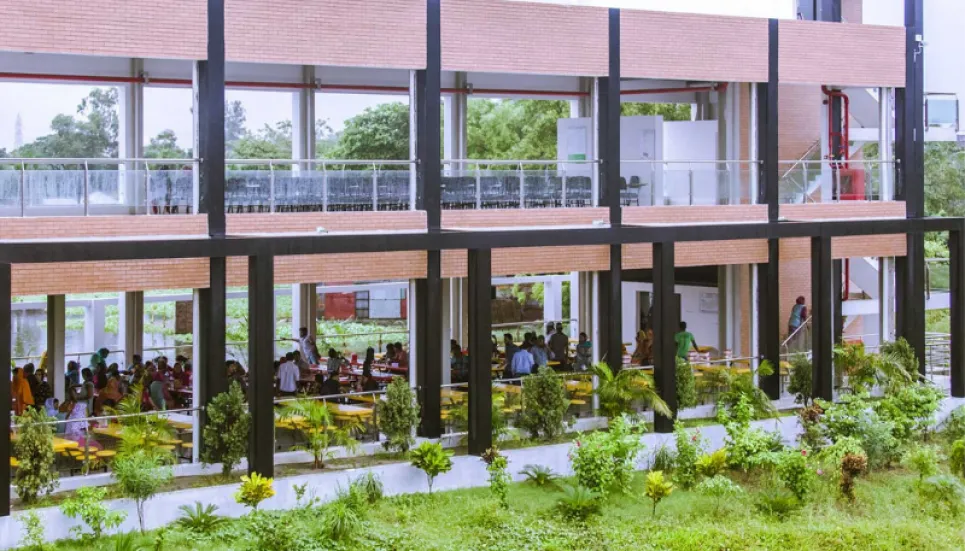
Apparel manufacturers have complained about not getting fair prices from buyers and inadequate policy support from the government despite massive investments in green factories.
At the launching of ‘securing green transition of the textile and readymade garments sector in Bangladesh’ at Brac Centre in Dhaka on Sunday, they urged all parties concerned to support them to continue the green initiative.
The Centre for Policy Dialogue (CPD) and Sweden Sverige launched the programme for the green garment factories in Bangladesh. CPD Executive Director Dr Fahmida Khatun moderated the dialogue.
Christine Johansson, Deputy Head of Mission and Head of Development Cooperation, Embassy of Sweden, said that the programme’s objective was to enhance environmentally sustainable and climate-neutral growth in Bangladesh with productive employment opportunities for women and youth.
At the programme, Bangladesh Garment Manufacturers and Exporters Association (BGMEA) President Faruque Hassan said they had 157 LEED factories, and two to four factories were getting certification every month. “It is a good progress and we need everyone’s support to continue it,” he said.
Faruque said that freight fares rose 350-500 per cent during the pandemic, while prices of raw materials and chemicals increased, putting pressure on the RMG owners.
Bangladesh Knitwear Manufacturers and Exporters Association’s Executive President Mohammad Hatem said, “At this time, the main problem is reasonable prices. RMG manufacturers only get 10 to 15 per cent of retail price where they have to adjust every cost. We got nothing out of our investment in green factories except for a feeling that we’re doing something good.”
He said they import chemicals for use at Effluent Treatment Plants, but the National Board of Revenue imposed duties. He wondered why the duties were for when the goal was to keep the environment clean.
Md Fazlul Hoque, Managing Director, Plummy Fashions Limited, a LEED platinum certified factory, said they had invested a considerable sum of money in green factories but were yet to get any return. “Now the situation is that you invest a lot but get nothing in return.”
“There is not enough policy support for green factories except for a 2 per cent tax rebate. It is a very little support,” he said, adding that the government should provide more incentives.
Shams Mahmud, Managing Director of Shasha Denims, said that country brand building is one of the most important issues to get a better price.
“Country brand is most important. For example, people are paying $5 for a product from Turkey because that country is a brand, but they are paying only $2 for the same product made in Bangladesh,” he said.
The government may consider giving us incentives on energy since green factories use less energy, Shams said.
Nazma Akter, Founder and Executive Director, Awaj Foundation, said that Bangladesh had made considerable development in the readymade garment sector. “But you can’t call it development if the focus lies on improving the environment and ignores workers’ livelihood,” she said.
Nazma said, “This sector was built with a low-cost workforce. When workers cross 40, they are removed from their jobs. But the law gives people legal right to work until 60 years of age.”
Saber Hossain Chowdhury, MP, Chairman, Standing Committee on Ministry of Environment, Forest and Climate Change, said that green factories would not be limited to the garment sector. It will be a future economic model for Bangladesh.
He said, “The presence of middlemen is one of the reasons for the low prices. We may focus on e-commerce to ensure fair prices. It could be a big platform to reach consumers and help us skip the middlemen. Then we will able to make a profit.”
He also said some manufacturers set ETP but do not use it and dump waste into the river without treatment. “So, policy support is not enough, smart monitoring is also important,” he added.
Khondaker Golam Moazzem, research director of CPD, said that it was time to jointly work with the Ministry of Environment to ensure green initiatives.